
On his way to the recent G8 Summit, Japanese Prime Minister Shinzo Abe stopped off in Central Europe to hold Japan's first ever summit with the Visegrad Group, which comprises the Czech Republic, Hungary, Poland and Slovakia.
In a joint statement the two sides emphasized their shared commitment to democracy, human rights and the rule of law, and announced a "partnership based on common values for the 21st century".
Japan's Mainichi Shimbun stated outright that this was undoubtedly intended as a message to China.
Shortly after taking office in December, Abe reiterated his "values diplomacy", telling the newspaper Yomiuri Shimbun in an interview on Dec 28 that Japan will deepen ties with nations that share and uphold these values.
Japan is now promoting this concept in a host of different diplomatic areas in a bid to build what it calls an "arc of freedom and prosperity" along the outer rim of the Eurasian continent.
The United States' rebalancing toward Asia has set the stage for a quadrilateral linking of Japan, Australia and India with the US. And after coming to office in December, Abe made his first overseas trip to South East Asia, visiting Vietnam, Thailand and Indonesia. He didn't even bother to conceal his intention that countering China was the main objective. During Indian Prime Minister Manmohan Singh's Tokyo visit in May, Abe maintained this line of thinking, stating that it was up to "India from the west, Japan from the east" to maintain peace in the region.
This reflects what Abe calls his "strategic diplomacy", which is aimed at reasserting Japan's position as a great power. And by characterizing Japan's partnerships with India and Southeast Asia as "value-based diplomacy", he is trying to exclude China from the cozy club of nations led by the US that dominates global governance.
"Declaring for all to hear that you're working to contain another country is not foreign diplomacy. (Japan's) Politicians must talk about how important Japan-China relations are with courage," Hitoshi Tanaka, chairman of the Institute for International Strategy at the Japan Research Institute, said in an interview with the Mainichi Shimbun.
Some people have called Abe's foreign policy neo-Cold War diplomacy, as is aggravating tensions between China and Japan. Others said Abe was just making an easy excuse for his right-wing policies.
During his visit to Washington in February, Abe tried to show that the Japan-US alliance had been completely revived, and he repeatedly emphasized the danger of an increasingly powerful China.
But contrary to his expectations, US President Barack Obama did not echo these sentiments to the same degree. The usual formal dinner was omitted, and even the official document that was released as a joint statement was extremely simple, containing only three paragraphs dealing with the Trans-Pacific Partnership.
The Sunnylands summit between Chinese President Xi Jinping and Obama in June unleashed copious speculation in Japan, especially when the US told Abe that there would be no meeting with Obama during the just-concluded G8 summit in Northern Ireland, which served as a reminder in Japan that the country was left in the dark until the last minute when former US president Richard Nixon visited Beijing in 1972, and was ignored when former President Bill Clinton visited China in 1998.
The ongoing tension between China and Japan over the Diaoyu Islands in the East China Sea, also named the Senkakus in Japan, among other issues, was raised during the informal summit between Xi and Obama. Tokyo takes the position that no territorial dispute exists over the islets.
However, in order to keep on the right side of the US, Abe was said to have told Obama in a telephone conversion that Japan is keeping the door open for dialogue with China.
To achieve that, Abe needs to show his sincerity to China, instead of badmouthing its neighbor to other countries, upgrading Japan's forces and moving them closer to Chinese territory.
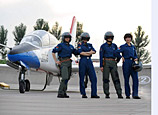
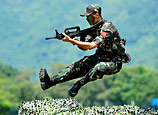



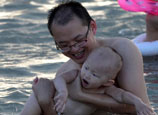

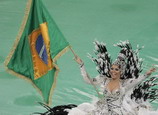
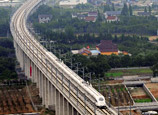







 China's weekly story (2013 6.22-6.28)
China's weekly story (2013 6.22-6.28)


![]()
